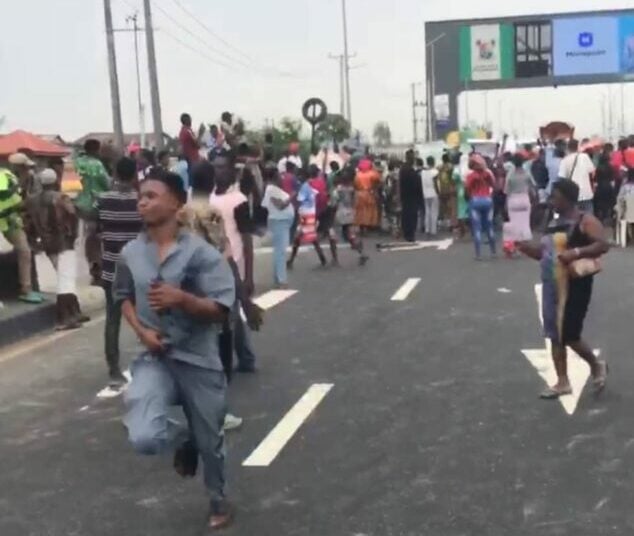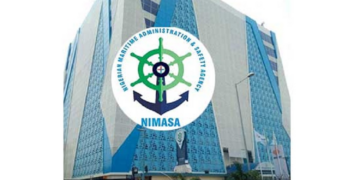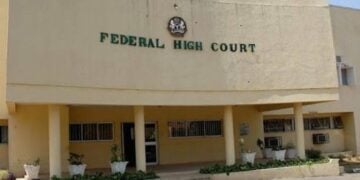Motor traffic on Third Mainland Bridge came to a grinding halt earlier on Monday as hundreds of residents displaced by the ongoing Oworonshoki demolition exercise took to the highway in a dramatic protest against the Lagos State Government’s forced evictions.
The protesters, largely women, children, and the elderly, occupied the outbound lanes of the bridge, causing a massive traffic gridlock that lasted for hours. Chanting protest songs and brandishing placards, the demonstrators demanded an immediate end to the demolition of their homes and called for justice, compensation, and resettlement.
The demolition has rendered thousands homeless, with many accusing the Lagos State Environmental and Special Offences Task Force of giving little to no notice before deploying bulldozers and security operatives to demolish their residences and shops.
Amid sobs, a resident told LEADERSHIP that, “We are human beings, not animals. They came at night with bulldozers and destroyed everything. We have nowhere to go. They want to bury us under this so-called development.”
An eyewitness described the protest as peaceful but emotionally charged. Commuters were forced to abandon vehicles as the gridlock paralyzed movement from Yaba, Iyana Oworo, and beyond.
Security operatives, including officers of the Nigeria Police Force, were seen on site attempting to restore order, though no formal statement had been issued by the state government at the time of filing this report.
The protest caught many Lagosians off-guard, with several commuters taking to social media to express frustration, while others voiced solidarity with the demonstrators, citing poor governance and lack of empathy in the state’s urban planning efforts.
Unconfirmed reports claimed the demolition was aimed at clearing illegal structures, protecting flood-prone areas, and removing criminal hideouts allegedly used by robbers targeting commuters near the bridge.
However, community groups said the exercise has targeted long-standing residential buildings some in existence for decades.
The protesters insisted that despite assurances from officials, no resettlement plans or compensation packages have been provided. Many victims were reportedly sleeping in churches, abandoned buildings, and makeshift wooden shacks.
As at press time, the Third Mainland Bridge had been partially reopened, though traffic remained sluggish. No arrests or casualties were reported during the protest.











